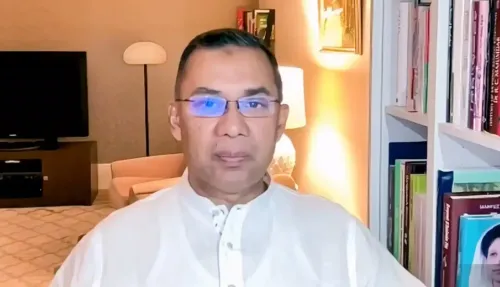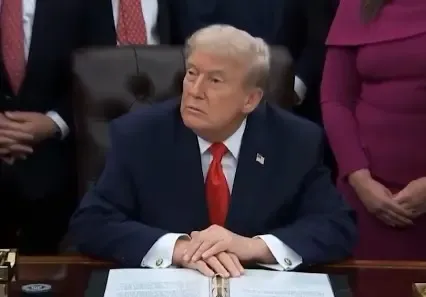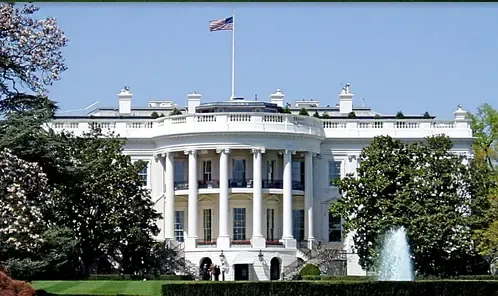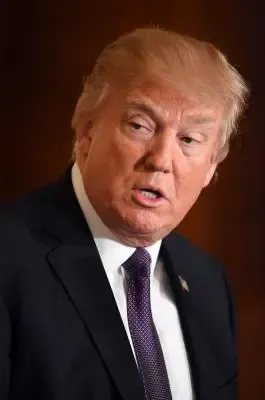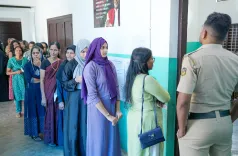Is the US-Philippines Alliance Essential for Peace and Stability in the Indo-Pacific?
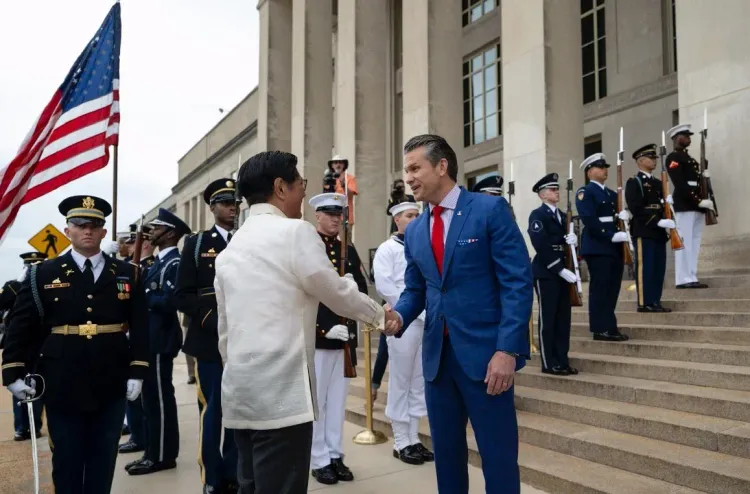
Synopsis
Key Takeaways
- The US-Philippines alliance is pivotal for peace in the Indo-Pacific.
- China's assertiveness in the South China Sea poses significant challenges.
- Modernization of the Philippine Armed Forces is underway.
- Dialogue and cooperation are essential in evolving regional contexts.
- The Mutual Defense Treaty underscores the commitment to mutual defense.
Washington, July 22 (NationPress) During his ongoing visit to the United States, Philippine President Ferdinand R. Marcos Jr. emphasized the crucial role of the Philippines-United States alliance in maintaining peace and stability in the South China Sea (SCS) and across the Indo-Pacific region amidst rising geopolitical tensions.
President Marcos's official trip to Washington, DC, spans from July 20 to 22. In a bilateral discussion with US Secretary of Defence Pete Hegseth at the Pentagon, he highlighted that the lasting partnership between the two nations serves as a fundamental pillar for regional security.
"I firmly believe that our alliance, the United States and the Philippines, has played a significant role in preserving peace and stability not just in the South China Sea but across the entire Indo-Pacific region," Marcos stated, as reported by the state-run Philippine News Agency.
The assertiveness of China in the South China Sea has increasingly alarmed numerous Southeast Asian countries, including the Philippines. China asserts sweeping claims over this region, which is rich in untapped natural resources such as oil and gas. Relations between the Philippines and China have deteriorated due to ongoing disputes in the South China Sea.
During their meeting, Hegseth remarked, "The Philippines is a model ally, modernizing its Armed Forces, enhancing our joint exercises, and supporting increased rotations of US forces and advanced capabilities—all of which help establish deterrence in the Asia-Pacific region."
President Marcos also underscored the importance of continuous dialogue and collaboration, given the shifting regional dynamics and security challenges.
"Maintaining our discussions is vital. We must adapt our relationship to the evolving circumstances in which we operate," he added.
Furthermore, according to a statement from the US Department of Defence, during the meeting, Hegseth and Marcos reiterated their commitment to the US-Philippines Mutual Defense Treaty and addressed shared security concerns in the Asia-Pacific region, along with recent advancements in their longstanding alliance.
"Our historic alliance has never been stronger or more necessary than it is today. Together, we remain committed to the mutual defense treaty, which extends to armed attacks on our forces, aircraft, or vessels, including our Coast Guard, anywhere in the Pacific, including the South China Sea," Hegseth noted.
The United States has designated the Asia-Pacific region as its priority theatre, and Hegseth stated that the US is prepared to collaborate with the Philippines and other like-minded nations to further President Donald J. Trump's agenda of peace through strength.
"The United States is dedicated to achieving peace through strength and is ready to work with all nations in the region that share this goal. We do not seek confrontation, but we stand ready and resolute," added the US Defence Secretary.


